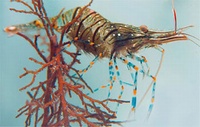
Dive Bulgaria Black is the new Red In recent years some new dive destinations have appeared around the world, a member of the European Union since 2007 Bulgaria is not yet known for its recreational diving, yet it hosts numerous ship wrecks. The Black sea is Bulgaria’s and Europe’s eastern border, the Bulgarian seacoast stretches 378 km from Turkey in the south to the Northern border with Romania, the coast line is so diverse with numerous natural landmarks, such as cliffs, wet zones, lakes and rivers, wide sandy beaches and sand dunes. The best time for diving in the Black Sea is between March and November. During the summer period the air temperature in Varna can reach 35°C and the water temperature 23°C between June and September, although the visibility can be limited. The deepest waters of the Black Sea reveal an abrupt transition from a fresh water ice age lake, which extends to depths of well over two kilometers. It is unique in having two layers, an oxygenated upper layer, about 200m deep, teeming with life, and a `dead` lower layer, where until recently nothing was thought to be able to survive. Wreck diving is one of the best experience divers could participate in. One of the most interesting events that took place on the Bulgarian and Romanian Black Sea coast in WWII was the destruction of the German Black Sea fleet, 101 ships and boats were sunk or abandoned along with four Russian submarines. The area offers excellent wreck diving and in recent year’s divers coming from the UK, Germany and Russia have expressed a genuine interest in the Black Sea wrecks. Some of these wrecks are from antiquity, dating back in time some 3-4000 years, others from recent merchant catastrophe, making up the rich diverse undersea flora and fauna forming artificial reefs, at a depth of 15 to 24 meters. Most of the wrecks are well preserved because of the low saltiness in the Black Sea, and are capable dives for qualified divers who have in their possession a valid dive certificate, most of the sites are accessible from the shore or by small boats. One of the highlights of the region is certainly the ancient Roman port city submerged in 12m of water some 40 km north of Varna. The dive site is surrounded by an amazing archeological site on land where ancient Roman tombs were found and dug out decades ago. It is believed that the treasure of Alexander the Great is buried in the vicinity... but has yet to be found! Marine life Apart from the Bottlenose and other species of dolphin, the sea has about 180 species of fish, including flounder, sea dragon, sea scorpion, mackerel, and the famous Black Sea shark. There is a lot to see in the waters of the Black Sea in June the mating characteristics of seahorses perform there synchronized swimming mating ritual, or swimming through the most bizarre but a naturally occuring event a jelly fish snow fall. When night diving in the Black Sea especially in August, you may notice that the waves have a strange luminous quality, caused by plankton interacting in the water. Exploration Explorer Robert Ballard (discoverer of the Titanic) led a team to the Black Sea in search of evidence for Noah’s Flood. Ballard’s 1999 expedition revealed an ancient shoreline. Also found were shells from freshwater and saltwater mollusk species. Their radiocarbon dates support the theory of a freshwater lake inundated by the Black Sea some 7,000 years ago. About 550 feet below the surface, they found evidence of a ‘sudden, catastrophic flood around 7,000 years ago—the possible source of the Old Testament story of Noah.’The water advanced a half-mile a day and within three months it`d flooded 60,000 square miles of farmland. The Black Sea had turned from fresh water to salt, and its size increased by a third. © 1999 National Geographic Society. All rights reserved. Diving in Bulgaria is diverse as it is breathtaking! For further information on Diving in Bulgaria please contact www.blackaqua.eu or www.vodasport.com For diving in Romania www.aquarius-diving.ro